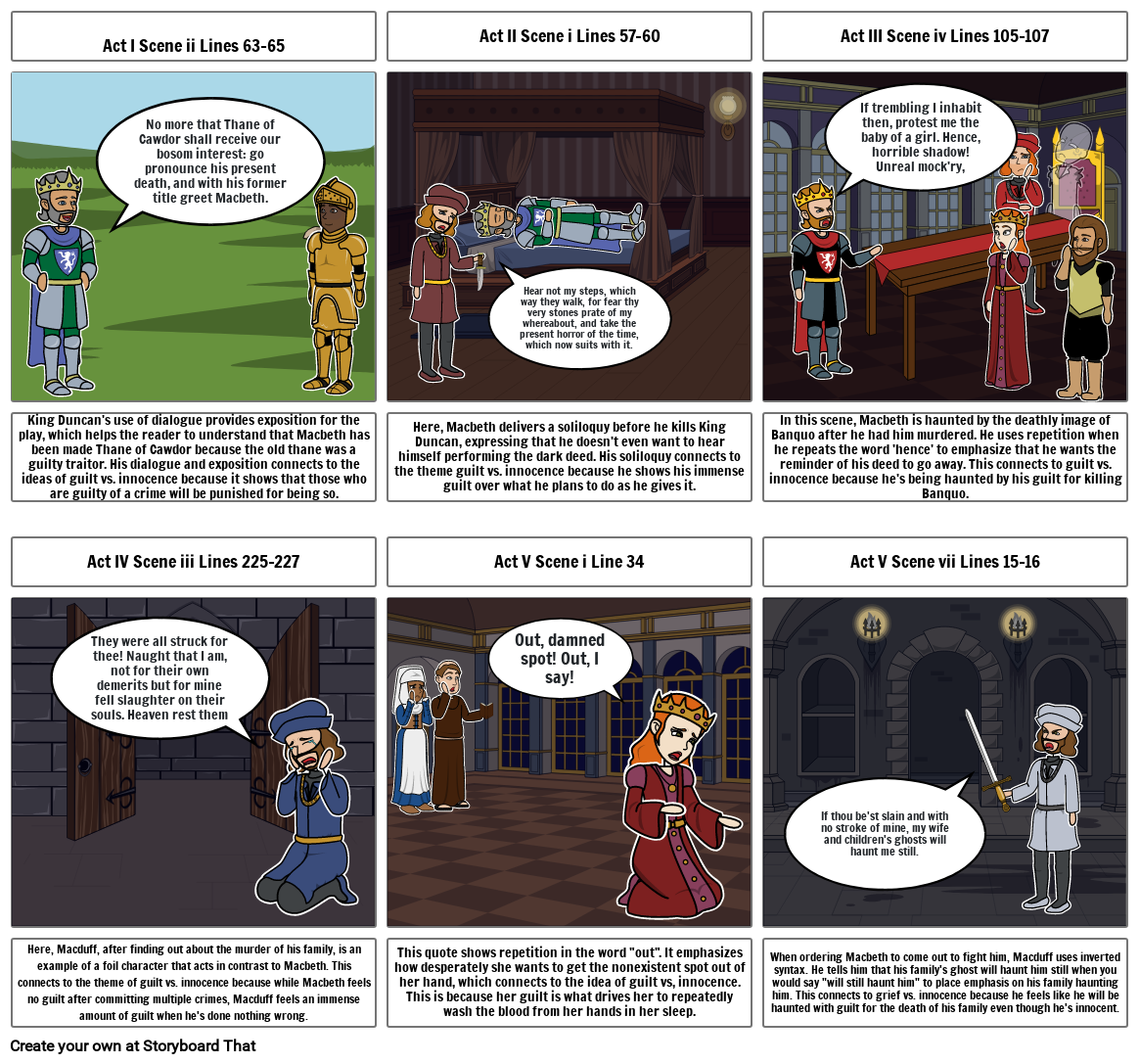Macbeth Storyboard - Guilt

Текст на Статията
- Act Act I Scene ii Lines 63-65
- No more that Thane of Cawdor shall receive our bosom interest: go pronounce his present death, and with his former title greet Macbeth.
- Act II Scene i Lines 57-60
- Hear not my steps, which way they walk, for fear thy very stones prate of my whereabout, and take the present horror of the time, which now suits with it.
- Act III Scene iv Lines 105-107
- If trembling I inhabit then, protest me the baby of a girl. Hence, horrible shadow! Unreal mock'ry, hence!
- King Duncan's use of dialogue provides exposition for the play, which helps the reader to understand that Macbeth has been made Thane of Cawdor because the old thane was a guilty traitor. His dialogue and exposition connects to the ideas of guilt vs. innocence because it shows that those who are guilty of a crime will be punished for being so.
- Act IV Scene iii Lines 225-227
- They were all struck for thee! Naught that I am, not for their own demerits but for mine fell slaughter on their souls. Heaven rest them now!
- Here, Macbeth delivers a soliloquy before he kills King Duncan, expressing that he doesn't even want to hear himself performing the dark deed. His soliloquy connects to the theme guilt vs. innocence because he shows his immense guilt over what he plans to do as he gives it.
- Act V Scene i Line 34
- Out, damned spot! Out, I say!
- In this scene, Macbeth is haunted by the deathly image of Banquo after he had him murdered. He uses repetition when he repeats the word 'hence' to emphasize that he wants the reminder of his deed to go away. This connects to guilt vs. innocence because he's being haunted by his guilt for killing Banquo.
- Act V Scene vii Lines 15-16
- Here, Macduff, after finding out about the murder of his family, is an example of a foil character that acts in contrast to Macbeth. This connects to the theme of guilt vs. innocence because while Macbeth feels no guilt after committing multiple crimes, Macduff feels an immense amount of guilt when he's done nothing wrong.
- This quote shows repetition in the word out. It emphasizes how desperately she wants to get the nonexistent spot out of her hand, which connects to the idea of guilt vs, innocence. This is because her guilt is what drives her to repeatedly wash the blood from her hands in her sleep.
- When ordering Macbeth to come out to fight him, Macduff uses inverted syntax. He tells him that his family's ghost will haunt him still when you would say will still haunt him to place emphasis on his family haunting him. This connects to grief vs. innocence because he feels like he will be haunted with guilt for the death of his family even though he's innocent.
- If thou be'st slain and with no stroke of mine, my wife and children's ghosts will haunt me still.
Над 30 милиона създадени разкадровки

